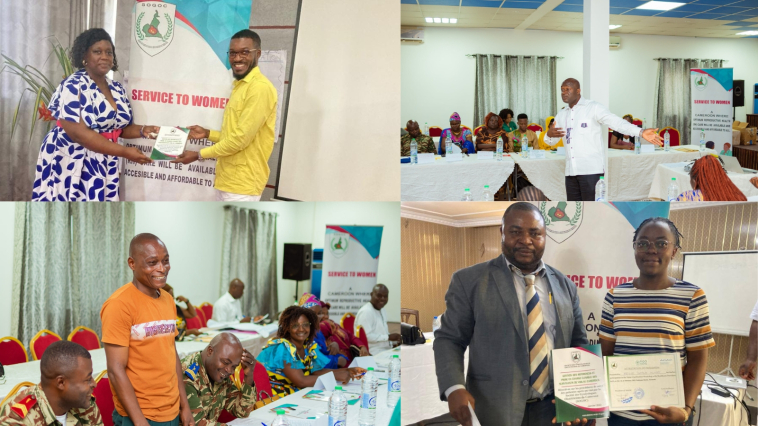Empowering healthcare: landmark training on comprehensive abortion care in Cameroon

In a groundbreaking initiative, the Society for Gynaecologists and Obstetricians Cameroon (SOGOC), in partnership with FIGO, has successfully trained over 300 medical practitioners from all ten regions of Cameroon on comprehensive abortion care. This training initiative, supported by FIGO Advocating for Safe Abortion Project, enhanced the knowledge and skills needed to manage abortion-related health issues in the country.
Addressing the key challenges in abortion care
The participants, eager to deepen their understanding, highlighted their desire to learn about the clinical management of provoked abortion, the legal context surrounding abortion in Cameroon and effective communication strategies to prevent unsafe abortions. The training sessions incorporated interactive exercises designed to illustrate the prevalence of unsafe abortions, emphasising that this issue has personally affected many attendees.
Through activities like practical workshops and the "cross the line" exercise, participants confronted the stark reality and impact of unsafe abortion practices, recognising that it has claimed lives or affected loved ones within their circles. These powerful moments fostered a shift in mindset, promoting empathy towards women and girls and encouraging healthcare providers to prioritise patient care over personal beliefs.
A call for change: testimonials from participants
Feedback from the training has been overwhelmingly positive, with many participants reporting a significant change in their approach to handling abortion-related cases, particularly in light of the guidelines set by the Cameroon Penal Code. There is a growing consensus among medical practitioners about the need for continued training in this critical area of women’s health in the country.
"The workshop on mitigating maternal mortality and morbidity from unsafe abortion practices in Cameroon was very timely. It was an engaging and practical session, particularly relevant for frontline healthcare providers such as doctors and nurses. The experience challenged our individual beliefs, values and attitudes towards safe abortion, clarified our understanding of legal framework, solidified knowledge of best practices on respectful care.“
Dr Obase Ralph, Resident Gynaecologist
Introducing the referral pathway for rape survivors
At the conclusion of the training, SOGOC unveiled a comprehensive referral pathway document tailored to the management of rape survivors in healthcare settings. This document serves as a critical resource, outlining standardised guidelines for medical care, treatment and rehabilitation services for survivors. Developed collaboratively with government ministries and organisations focused on Sexual and Reproductive Health and Rights (SRHR), the publication addresses the urgent need for a cohesive response to the challenges faced by stakeholders when caring for survivors of sexual violence.
SOGOC emphasises that, while several manuals exist regarding the management of rape survivors, none of them provide a clear roadmap for addressing pregnancies resulting from rape. This newly developed document aims to fill that gap, ensuring that healthcare providers have the necessary tools to navigate these complex situations effectively.
A commitment to reducing maternal mortality
This training initiative aligns with SOGOC's broader mission to reduce maternal mortality and morbidity in Cameroon. According to the 2018 National Demographic Health Survey, the regional maternal mortality rate stands alarmingly at 1,025 per 100,000 live births, significantly higher than the national average of 406. Approximately 13% of these deaths are attributed to unsafe abortions. By addressing the issue of unsafe abortion, SOGOC aims to make substantial strides in lowering maternal mortality rates across the nation.
Changing minds and attitudes
SOGOC's commitment to comprehensive abortion care training not only empowers healthcare providers with essential skills, but also fosters a culture of empathy and understanding towards women facing challenging circumstances. As society continues to champion women's health, it invites more healthcare providers to engage in training initiatives that pave the way for safer and more compassionate care for all. Together, we can create a brighter future for women's health in Cameroon.